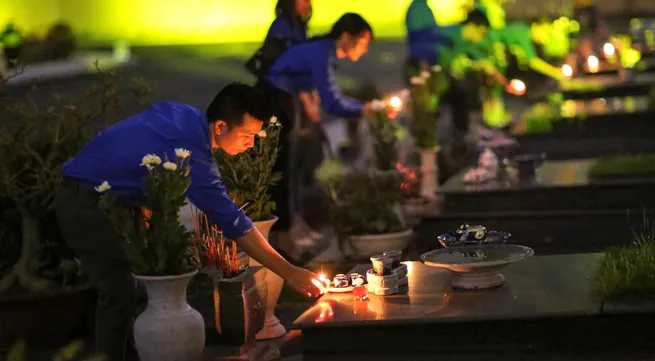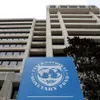Vietnamese tradition of showing gratitude shines forever

On February 16, 1947, President Ho Chi Minh signed an order on the pension, disability compensation and bereavement allowance for the relatives of fallen soldiers. The order was considered the first legal document on the benefit policy towards wounded service people and fallen soldiers, affirming the importance of veteran affairs to the resistance war for national liberation while expressing the Party and State’s profound care for wounded and sick soldiers as well as families of the fallen.
In June 1947, President Ho Chi Minh asked the Government to choose a day as the National Wounded Soldiers Day for the people to express their gratitude to wounded soldiers. Later, a conference was held in Thai Nguyen province and it was decided to select July 27 as the National Wounded Soldiers Day before, which was renamed as Wounded and Fallen Soldiers Day in 1955.
Since then July 27 has become a significant day and a fine tradition of Vietnamese culture as desired by President Ho Chi Minh, who said that “July 27 is a commemorative day. Each year on this day, Vietnamese patriots will think of the wounded soldiers, the families of martyrs, the unknown heroes and those who sacrificed their lives or contributed part of their flesh and blood to our nation’s great resistance war.”
During his life, President Ho Chi Minh always paid special attention to wounded and fallen soldiers, which was demonstrated in a consistent, specific and practical manner in his speeches, writings and actions.
In his testament, President Ho Chi Minh stated that care must first be given to wounded and sick soldiers and families of the fallen, noting that the Party, Government and people must do everything to afford them stable shelter and open vocational classes so that they can earn a living on their own.
For the fallen, President Ho Chi Minh called for construction of commemorative gardens and steles to remember their heroic sacrifices and educate people in the patriotic spirit. For parents, wives and children of fallen soldiers, local governments must help them look for appropriate jobs and must not let them starve.
President Ho Chi Minh’s humane teachings have been translated into many programmes and policies to support wounded soldiers and families of the fallen. As the country enters a period of economic reform, the policy towards revolutionary contributors has received increasingly greater attention. The system of preferential policies and laws for contributors have become more fine-tuned, and the benefits have become better.
With the profound care of the Party, State, the political system and the whole of society as well as their own efforts, the lives of national contributors have increasingly improved. To date, the living standard of more than 98.5% of national contributors’ households is equal to or higher than the average of their residential areas.
The programmes to build houses for and present savings books to national contributors, take care of heroic mothers, search for fallen soldiers’ remains, and renovate martyrs’ cemeteries, monuments and so on are attracting more and more participation from the whole society. Such results are significant, demonstrating the sentiment, responsibility, gratitude and special care of the entire Party, people and military towards those who have made contributions and sacrifices for the motherland.
This year, the observance of Wounded and Fallen Soldiers Day coincides with a wide range of emulation activities to mark the 50th anniversary of implementing President Ho Chi Minh’s Testament. His humane ideas will continue to kindle the fire of national solidarity, patriotism and the indomitable spirit in the younger generations, as well as to provide guidance for further enhancing the effectiveness of activities to show appreciation for heroes, martyrs, families of the fallen and national contributors. It is also a continuation of the Vietnamese people’s fine tradition.
This is both our sentiment and sacred responsibility!
Tags:





